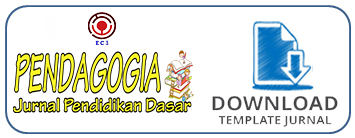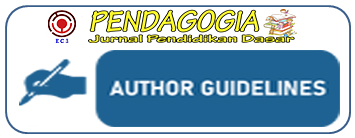Efektivitas Metode Investigasi Group Terhadap Hasil Belajar Siswa Materi Energi (IPAS) di Kelas III Sekolah Dasar
Keywords:
group investigation, student learning outcomes, cooperative learning, primary science educationAbstract
Science learning in elementary schools often faces obstacles and challenges, particularly in delivering topics such as energy and electricity to students in the classroom. The core issue lies in the conventional methods commonly used by teachers, where learning is teacher-centered and tends to limit students’ active participation and understanding. As a result, students often experience a decline in interest and achievement due to monotonous and unengaging instruction. This study aims to analyze the effectiveness of implementing the Group Investigation (GI) method, supported by electrical learning aids, in improving the learning outcomes of Grade III students on the topic of energy. It is expected that this approach can offer a solution to common instructional problems in Indonesia. The research adopts a quantitative approach using a classroom action research (CAR) design conducted over two cycles. The research subjects were 25 third-grade students from SDN 4 Situjaya. Learning outcome tests and classroom documentation were used as the primary instruments in this study. The results indicated a positive improvement in student participation during the learning process, with notable progress in cooperation and communication skills. This was accompanied by a significant increase in students’ test scores. In conclusion, the study demonstrates that the Group Investigation method is effective in enhancing students’ learning outcomes on the topic of electrical energy through collaborative learning and active group investigation
Downloads
References
Amanu, N. A., Faradita, M. N., & Lukitasari, D. (2023). Penggunaan Metode Group Investigation untuk Meningkatkan Hasil Belajar Siswa. J-SES: Journal of Science, Education and Studies, 2(2).
Arinda, Y., Wilujeng, İ., & Kuswanto, H. (2019). The Application Group Investigation (GI) Learning Model assisted Phet to Facilitate Student Scientific Work Skills. International Journal of Educational Research Review, 4(2), 254–261. https://doi.org/10.24331/ijere.518069
Athoillah, A., Hardiansyah, F., & Shiddiq, A. (2025). Pengaruh Media Flashcard Terhadap Hasil Belajar Matematika pada Siswa Kelas 3 Sekolah Dasar. Journal of Human And Education (JAHE), 5(2), 145–153. https://doi.org/10.31004/jh.v5i2.2369
Bo, P., Fatmawati, L., Muhamin, M. A., & Yubo, S. (2024). STUDY ON THE INFLUENCING FACTORS OF EFFECTIVE GROUP COOPERATION MODE IN CHINESE UNIVERSITIES CLASSROOM. INTERNATIONAL JOURNAL OF HUMANITIES TECHNOLOGY AND CIVILIZATION, 9(2), 133–137. https://doi.org/10.15282/ijhtc.v9i2.11618
Frame, T. R., Cailor, S. M., Gryka, R. J., Chen, A. M., Kiersma, M. E., & Sheppard, L. (2015). Student Perceptions of Team-based Learning vs Traditional Lecture-based Learning. American Journal of Pharmaceutical Education, 79(4), 51. https://doi.org/10.5688/ajpe79451
Freeman, S., Eddy, S. L., McDonough, M., & Wenderoth, M. P. (2014). Active learning increases student performance in science, engineering, and mathematics. Proceedings of the National Academy of Sciences, 111(23), 8410–8415. https://doi.org/https://doi.org/10.1073/pnas.1319030111
Herlina, Syaodih, E., & Sritumini, B. A. (2012). Efektivitas Penerapan Model Pembelajaran Group Investigation Dalam Upaya Meningkatkan Aktivitas Belajar Siswa. EDUCARE, 10(2), 34–45.
Heryana, L. Y., & Badarudin. (2024). UPAYA MENINGKATKAN HASIL BELAJAR SISWA MELALUI PENGGUNAAN MODEL PEMBELAJARAN RADEC PADA MATERI ENERGI DAN PERUBAHANNYA DI KELAS III SDN 2 TAMBAKSOGRA. Didaktik: Jurnal Ilmiah PGSD STKIP Subang, 10(2), 10–21. https://doi.org/0.36989/didaktik.v10i2.2803
Jayanti, D. D., Arif, Q. N., & Marlina, M. (2024). Penerapan Model Pembelajaran PBL (Problem Based Learning) Materi Daur Air Pada Pelajaran Biologi. Publikasi Hasil Pengabdian Dan Kegiatan Masyarakat, 2(2), 54–61. https://doi.org/10.61132/aspirasi.v2i2.447
Lubis, A. L., Murniati, N. A. N., & Sofiaty, R. N. (2025). MENINGKATKAN HASIL BELAJAR MELALUI MODEL COOPERATIVE LEARNING PELAJARAN PENDIDIKAN PANCASILA DI KELAS I SD SUPRIYADI 02 SEMARANG. Alpen: Jurnal Pendidikan Dasar, 9(1), 56–66. https://doi.org/10.24929/alpen.v9i1.382
Ni’mah, U. N. I., & Mustofa, T. A. (2024). Strategi Pembelajaran Pendidikan Agama Islam untuk Siswa Inklusi di Sekolah Menengah Pertama Kelas Delapan. Aulad: Journal on Early Childhood, 7(1), 104–114. https://doi.org/10.31004/aulad.v7i1.589
Nisa’i, S. H., Syofyan, H., Hotimah, U., & Nurhayati, R. (2022). Penggunaan Metode Ceramah dalam Pembelajaran IPA di Kelas Rendah dan Tinggi. Seminar Nasional Ilmu Pendidikan Dan Multi Disiplin, 5(01).
Nurhasani, S., & Luthfi, A. F. (2024). Implementasi CapCut sebagai Media Pembelajaran untuk Meningkatkan Minat Belajar Siswa pada Mata Pelajaran Bahasa Indonesia. Ainara Journal (Jurnal Penelitian Dan PKM Bidang Ilmu Pendidikan), 5(4), 398–402.
Parisu, C. Z. L., Sisi, L., & Juwairiyah, A. (2025). Pengembangan Literasi Sains pada Siswa Sekolah Dasar melalui Pembelajaran IPA. Jurnal Pendidikan Multidisiplin, 1(1), 11–19. https://doi.org/10.54297/jpmd.v1i1.880
Putri, S. A., Juniarso, T., & Hanindita, A. W. (2024). ANALISIS KESULITAN SISWA DALAM MEMAHAMI KONSEP PERUBAHAN ENERGI PADA MATA PELAJARAN IPA KELAS III SD. Jurnal Pendidikan Ilmiah Transformatif, 8(8), 97–103.
Suhartono, S., & Indramawan, A. (2021). Group Investigation; Konsep dan Implementasi dalam Pembelajaran. Academia Publication.
Downloads
Published
Issue
Section
License
Copyright (c) 2025 Iqbal Abdul Kholik , Mansur, Nofri Yuhelman

This work is licensed under a Creative Commons Attribution-NonCommercial-ShareAlike 4.0 International License.








